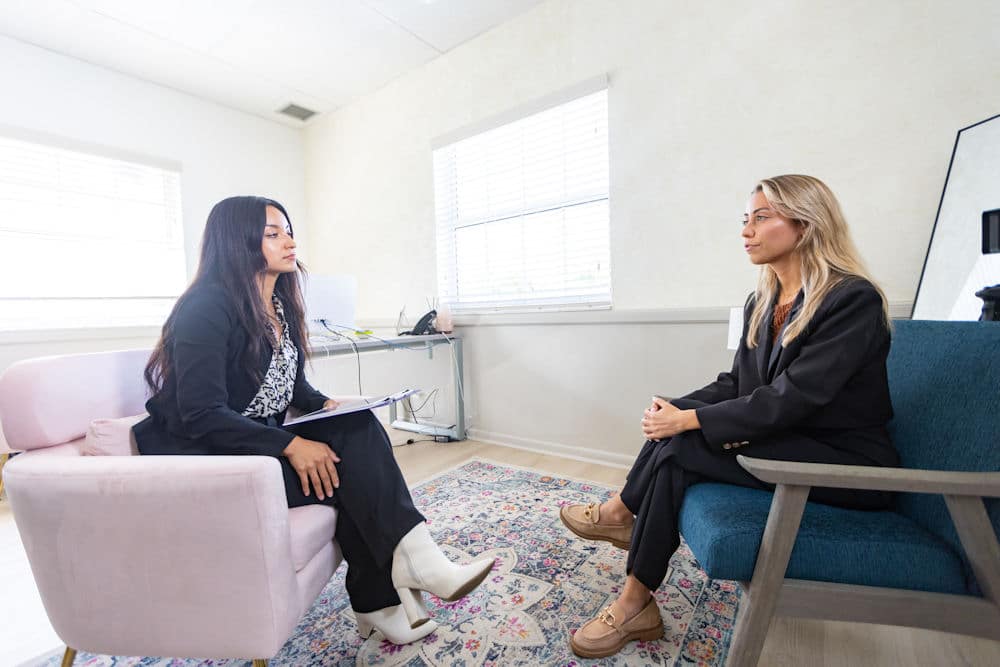Many people refer to addiction as a family disease because when one person suffers from addiction, their friends and family are affected as well. Drug and alcohol addiction have vast impacts on the people closes to an addict. As a result, family members may begin developing certain roles when living in a household affected by addiction.
These roles usually begin with the best of intentions. After all, most families simply want to help their addicted loved ones. However, what usually ends up happening is that you begin neglecting your own personal needs and cope with the chaos in the home in negative ways. The ways in which family members cope and behave are what define the six different roles that develop in addicted households.
Oftentimes, it’s hard for individuals to recognize that they have begun playing a different role. Although each family dynamic is different, the six most common roles in addiction include the:
- Enabler
- Mascot
- Scapegoat
- Hero
- Lost child
- Addict
Although these roles aren’t healthy, they can be unlearned in family addiction therapy programs. Let’s take a deeper look into each one of these family roles to better understand how addiction affects family members.
Table of Contents
ToggleThe Enabler A.K.A The Codependent
The enabler is perhaps the most well-known family role in addicted households. This individual is also referred to as the codependent as they strive to protect their addicted loved ones from experiencing consequences as a result of their behaviors. For example, the enabler might bail their loved one out of jail, lie or cover up their behaviors, or make excuses for their loved one’s actions. Above all, the enabler neglects his or her own well-being at the expense of the addict.
The enabler is usually a parent, spouse, or significant other who feels it is their responsibility to care for the addict. This individual may, over time, begin to lose his or her sense of self or suffer from depression and anxiety as a result of neglecting self-care.
The Mascot – Your Friendly Class Clown
The mascot is often thought of as the class clown because they attempt to reduce chaos in the home using humor. This is typically a younger sibling who is constantly trying to make light of a negative situation. The mascot may be uncomfortable with confrontation or expressing emotions, so jokes and humor become a way of survival.
Despite the outward appearance of smiles and positivity, the mascot is usually fairly vulnerable and fearful inside. Since this specific role tends to avoid emotion, the mascot may grow up to self-medicate with drugs or alcohol, further extending the cycle of addiction in the family.
The Scapegoat – A Distraction
The scapegoat is a role typically assumed by a middle or older child who suffers the brunt of the family’s anger. This person might underperform in school, engage in risky behaviors, act out in violence, or have general behavioral issues. The scapegoat causes a great number of problems, but tends to get blamed for the entirety of the family’s issues, therefore, taking the blame and attention away from the addict.
The Hero – The Overachiever
The hero is the hard-working, overachieving, perfectionist of the family. Usually a type-A personality, this individual strives to control what goes on in the home, compensate by working extra hard on everything they do, and bring a sense of normalcy back into the family unit. The hero is typically the older child in the family.
Despite the perfectionist persona, the hero often puts too much pressure on himself or herself. As a result, this family role is highly susceptible to anxiety, stress, depression, and other related health conditions later on in life.
The Lost Child
The lost child is typically the role assumed by the middle or youngest child who simply gets a little lost in the mess. This family member is usually shy, soft-spoken, and feels invisible to the rest of the family. While the addict is creating chaos and the rest of the family copes, the lost child doesn’t get much attention from the rest of the family.
The lost child isn’t only disconnected and distant in the home. In fact, the lost child might have trouble making decisions, developing meaningful relationships, and socializing with the people around him or her.
The Addict
Last, but not least, we have the addict – the person around whom the turmoil in the home and the family roles revolve around. This person struggles with ongoing substance abuse and uses drugs or alcohol to cope with their feelings. The addict or alcoholic might lie, cheat, steal, or manipulate in order to get their next fix. In addition, this person might blame others for their problems and deny that they have a problem in the first place. At the end of the day, however, it’s obvious that this person can’t stay away from a drink or a drug.
Seeking Help for Families Affected by Addiction
If any of these family roles sound family, know that you’re not alone and that all of these unhealthy roles can be overcome. The first step is to identify unhealthy behaviors by taking an honest look at yourself and your family members. Then, you have to learn how to cope in the right ways without enabling your loved one’s addiction.
When it comes to family roles in addiction, you can’t always force your loved one to get help. However, you can get help for yourself and your family. As you begin to heal and stop tolerating the addict’s behaviors, he or she will be forced to look at their own behaviors and possibly ask for help.
It’s imperative that no matter what, you and your family get the help you deserve. Family members are a vital part of a person’s recovery, but you can only be supportive if you break those negative family roles associated with addiction.
At Agape Treatment Center, we take a whole-patient approach that addresses all areas of their lives that addiction affects – including families. To learn more about how our family program can help you, your family, and your addicted loved one, contact us today.







